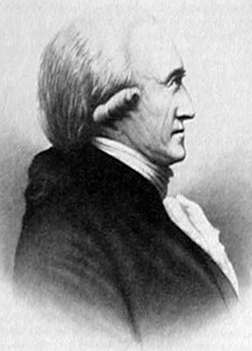Benjamin Hawkins
| Benjamin Hawkins | |
|---|---|
 |
|
|
United States Senator from North Carolina |
|
|
In office December 8, 1789 – March 4, 1795 |
|
| Preceded by | None |
| Succeeded by | Timothy Bloodworth |
| Member of the Congress of the Confederation | |
|
In office 1781 – 1783 1787 |
|
| Member of the North Carolina House of Representatives | |
|
In office 1778 – 1779 1784 |
|
| Personal details | |
| Born |
August 15, 1754 Granville County, Province of North Carolina, British America |
| Died | June 6, 1816 (aged 61) Crawford County, Georgia, U.S. |
| Resting place | Roberta, Georgia, U.S. |
| Political party | Pro-Administration (1789–1791) Anti-Administration (1791–1795) |
| Alma mater | College of New Jersey |
Benjamin Hawkins (August 15, 1754 – June 6, 1816) was an American planter, statesman, and U.S. Indian agent. He was a delegate to the Continental Congress and a United States Senator from North Carolina, having grown up among the planter elite. Appointed by George Washington as General Superintendent for Indian Affairs (1796–1818), he had responsibility for the Native American tribes south of the Ohio River, and was principal Indian agent to the Creek Indians.
Hawkins established the Creek Agency and his plantation in present-day Georgia, where he lived in what became Crawford County. He learned the Muscogee language, was adopted by the tribe and married Lavinia Downs, who some believe was a Creek woman, with whom he had seven children. (See marriage and family below) He wrote extensively about the Creek and other Southeast tribes: the Choctaw, Cherokee and Chickasaw. He eventually built a large complex using African slave labor, including mills, and raised a considerable quantity of livestock in cattle and hogs.
Hawkins was born to Philemon and Delia Martin Hawkins on August 15, 1754, the third of four sons. The family farmed and operated a plantation in what was then Granville County, North Carolina, but is now Warren County. He attended the College of New Jersey (later to become Princeton University), but he left college in his last year to join the Continental Army. Hawkins was commissioned a Colonel and served for several years on George Washington's staff as his main interpreter of French.
...
Wikipedia
